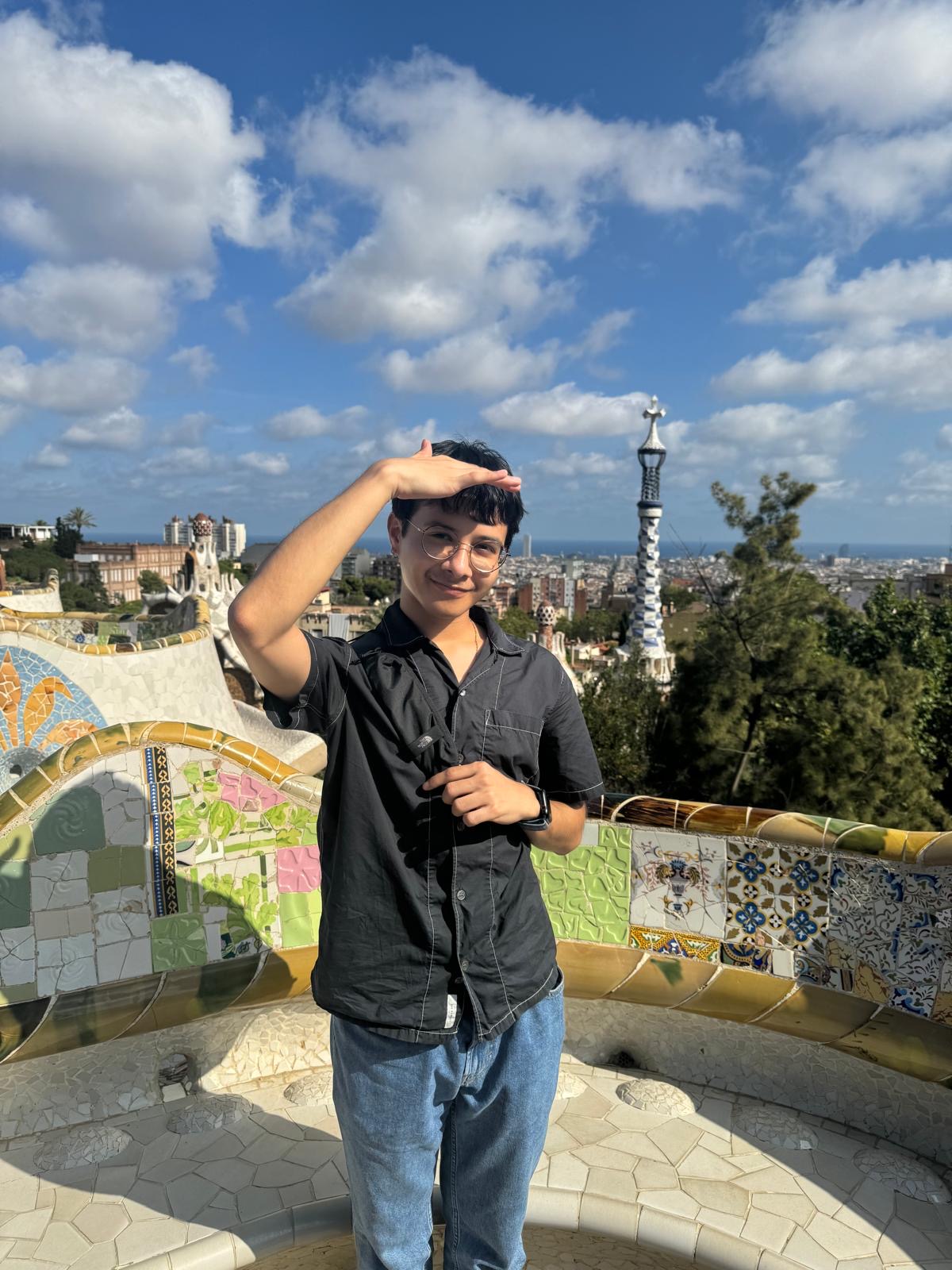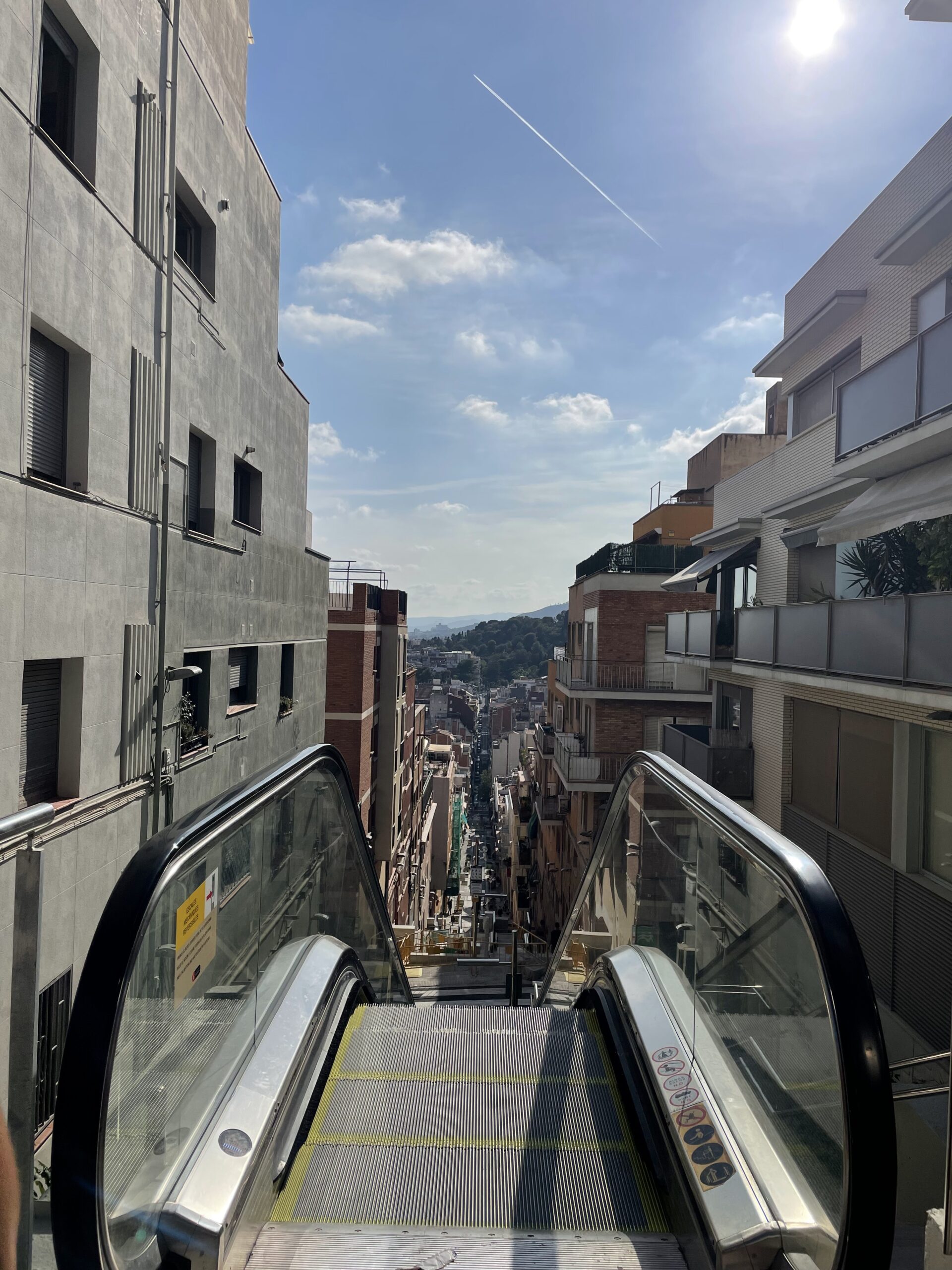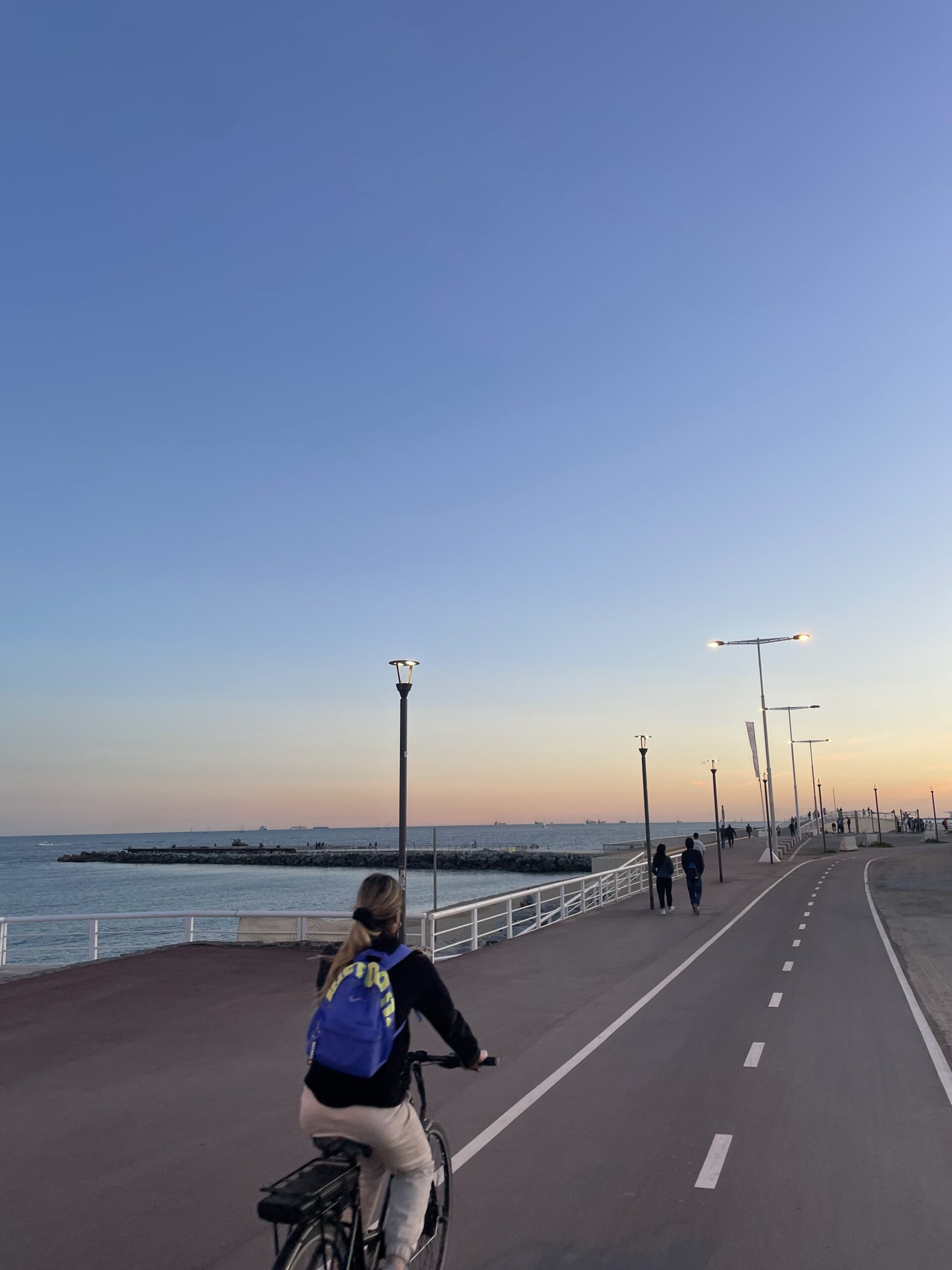The Multilingual Tapestry of Barcelona: A Journey Through Language Fluidity
By: Josue Ruiz, CAS ’25

SA: CASA Barcelona: Spanish Universities Program, Spain
Josue, one of the Semester Abroad Global Correspondents, shares his experience abroad during the Fall 2024 semester. Follow along with the group of correspondents on our blog and look out for their images on the @pennabroad Instagram feed.

When I decided to study abroad in Barcelona, I anticipated that language would be a key topic of conversation, especially in a city known for its multilingual nature. While I’ve experienced multilingual environments in cities like New York and visited family in Spanish-speaking Honduras, Barcelona’s approach to multilingualism is entirely unique. Instead of having one dominant language, as I’ve experienced it, Barcelona seems to embrace multiple main languages while hosting a vast range of others.
Growing up, I took my bilingualism for granted. As a child of immigrants, Spanish was the language of family, while English was the language of school. I never really questioned this reality, especially as I grew up in a large immigrant community in Houston, Texas. It wasn’t until later that I began to unpack what it meant to be raised bilingual.
My experiences in Barcelona have rekindled my curiosity about the complexities of multilingualism. In many ways, the city parallels my own journey. Both Barcelona and I have navigated the pressures of maintaining a multilingual worldview. Personifying the city as a bilingual entity has helped me connect my own background to this unfamiliar environment. What has intrigued me most, though, is how deeply embedded multilingualism is within Barcelona’s culture.
 Everywhere I go, I’m faced with language choices. Whether it’s a restaurant menu offered in English, Castellano (Spanish), or Catalan, or hearing a mix of Catalan and Castellano in my classroom, language is a constant presence. Even choosing courses at the university involves navigating classes taught in Catalan, Castellano, English, or even a mix of languages. As a student here, being monolingual simply isn’t an option.
Everywhere I go, I’m faced with language choices. Whether it’s a restaurant menu offered in English, Castellano (Spanish), or Catalan, or hearing a mix of Catalan and Castellano in my classroom, language is a constant presence. Even choosing courses at the university involves navigating classes taught in Catalan, Castellano, English, or even a mix of languages. As a student here, being monolingual simply isn’t an option.
Some people argue that multilingualism creates inefficiencies in communication, but Barcelona
proves the opposite. Whether it’s service workers or students, learning multiple languages is seen less as a burden and more as a superpower—a way to connect with people from all over the world, from Africa and South America to North America, Australia, and Europe.
Though I come from a multilingual household and city, my time in Barcelona has expanded my understanding of what multilingualism can look like. In Houston, even with its linguistic diversity, English remains the dominant language. In Barcelona, however, multilingualism is not just present but actively supported and nurtured by the city’s infrastructure.
Now, when I walk into restaurants, attend classes, or join social events, I find myself shifting
between languages with ease. Sometimes I even use multiple languages in the same
conversation. So, the next time someone asks me which language I speak or what language
menu I prefer, I’ll appreciate the fluidity of language—a tool not just for communication, but for
inclusivity and flexibility.
The Study Abroad (SA) program offers undergraduate students the opportunity to study in a new global community through extended study for a semester or year. Penn Abroad partners with top institutions around the globe and collaborates with Penn’s undergraduate schools to offer programs for students across academic disciplines.